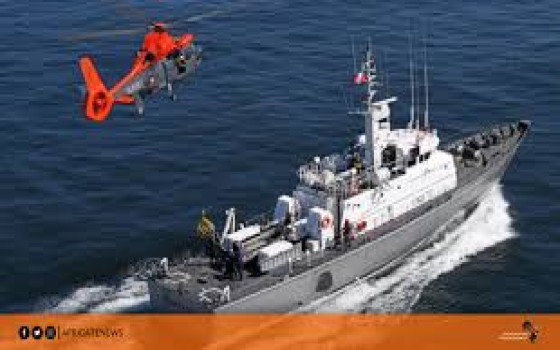
الاتحاد الاوروبي : سيناريو الحرب يبدو وكأنه ينتقل من غزة الى الضفة الغربية ..نجحنا في حماية أكثر من 217 سفينة تجارية وتدمير 22 صاروخًا وطائرة بدون طيار أطلقها الحوثيون

- Europe and Arabs
- السبت , 31 أغسطس 2024 8:26 ص GMT
بروكسل : اوروبا والعرب
اختتم وزراء دفاع دول الاتحاد الاوروبي نقاشات بدأت على مستوى وزراء الخارجية الخميس ثم توسعت على مستوى وزراء الدفاع الجمعه وتناولت ملفات تتعلق بالوضع في اوكرانيا ومنطقة الشرق الاوسط والبحر الاحمر وقضايا اخرى تتعلق بالدفاع الاوروبي .
ونقل بيان اوروبي صدر في بروكسل ماجاء على لسان جوزيف بوريل منسق السياسة الخارجية في الاتحاد الاوروبي خلال مؤتمر صحفي ختامي حيث قال " بعد مناقشة ملف اوكرانيا
انتقلنا إلى الشرق الأوسط، التصعيد الإقليمي بين إسرائيل وحزب الله. ناقشنا ذلك مع وزراء الخارجية.أعرب الوزراء عن دعمهم للمفاوضات الجارية لوقف إطلاق النار.
وهناك قضية أخرى تثير قلقا كبيرا، وهي – أستطيع أن أقول ذلك – الحرب في الضفة الغربية. طلب الأمين العام للأمم المتحدة [أنطونيو غوتيريش] أمس وقف إطلاق النار ووقف العمليات العسكرية الإسرائيلية في الضفة الغربية، والتي أسفرت عن عدد كبير من الضحايا وتدمير البنية التحتية المدنية.
نحن قلقون للغاية لأن سيناريو الحرب يبدو الآن وكأنه ينتقل من غزة إلى الضفة الغربية. وهذا أيضا وسيلة لتهديد الاستقرار الإقليمي. يجب تجنب التصعيد. دعونا نأمل أن يتم الاستماع إلى نداء الأمين العام للأمم المتحدة.
سندعم القوات المسلحة اللبنانية، ونحن نفعل ذلك بالفعل مع مرفق السلام الأوروبي. نحن بحاجة إلى المزيد من الدعم، وهذا يتطلب تمويلا إضافيا في العام المقبل.
لقد أطلعنا وكيل الأمين العام للأمم المتحدة [جان بيير] لاكروا على جهود الأمم المتحدة في المنطقة. أنتم تعلمون مدى صعوبة عمل وكالات الأمم المتحدة - وليس فقط الأونروا، بل والعديد من وكالات الأمم المتحدة - في إسرائيل والأراضي المحتلة، بما في ذلك غزة. نحن نعبر عن دعمنا القوي للأمم المتحدة ورفضنا لتصنيف منظمة إرهابية كوكالة تابعة للأمم المتحدة.
ثم ذهبنا إلى البحر الأحمر ومنطقة الخليج.
لاحظنا أن الحوثيين يشنون هجمات أكثر تعقيدًا. الهجوم الأخير على السفينة التي تحمل العلم اليوناني سونيون الأسبوع الماضي هو أحدث تصعيد خطير للتهديدات للملاحة في البحر الأحمر. لدينا [قوة الاتحاد الأوروبي البحرية] أسبيدس تعمل بكامل طاقتها
عدد السفن التي تمر عبر قناة السويس يتناقص. ونحن بحاجة إلى المزيد من السفن. نحن بحاجة إلى المزيد من القوات.
لقد طلبت من الدول الأعضاء زيادة قدرة أسبيدس.
في غضون ذلك، التوازن جيد. لقد نجحت عملية ASPIDES في حماية أكثر من 217 سفينة تجارية وتدمير 22 صاروخًا وطائرة بدون طيار أطلقها الحوثيون.
الآن، القضية الكبرى هي تجنب كارثة بيئية بالنفط الذي كانت السفينة سونيون تنقله. سيتم إيجاد حل، وسوف نتعاون في هذا الشأن.
[عملية] ASPIDES تساهم بالتأكيد في استعادة ثقة الشحن البحري وتشجيعه على العودة إلى طرقه الأصلية عبر البحر الأحمر.
ولكن من أجل ذلك، يتعين على ASPIDES أن تمتلك الأصول التي تتطلبها. لقد دعوت الدول الأعضاء إلى تكثيف مساهمتها.
ونحن بحاجة أيضًا إلى معالجة التدفق المستمر للأسلحة غير المشروعة إلى الحوثيين. نحن نبحث في ما يمكننا القيام به، وسنناقش هذا الأمر بشكل أكبر في سياق المراجعة الاستراتيجية لعملية ASPIDES في نوفمبر.












لا يوجد تعليقات